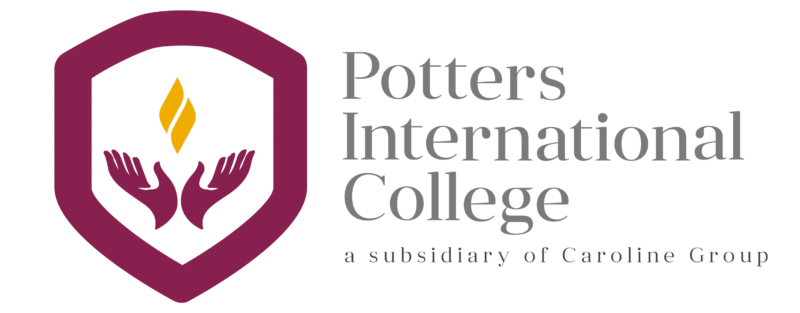This program is designed for students pursuing a career within the field of project management. The coursework gives students an understanding of the processes and techniques required in project management. Students who successfully complete the program will receive a Canadian College Project Management Diploma and will be prepared to challenge exams to receive either PMI’s PMP certification (minimum 3 years related work experience) or the CAPM certification (no experience necessary.)

This program is intended to prepare a student for a career in Project Management. At the end of this program, students will be able to demonstrate a knowledge of project management operations, including human resource management, risk management, budgeting and accounting, marketing, and business computer applications
This course introduces financial accounting concepts. Students learn the double-entry accounting system, including the preparation of financial statements, closing entries, internal controls for cash and payroll accounting
This is a fundamental course in business mathematics. Topics covered include mathematics of merchandising, simple interest, compound interest, annuities, loan amortization, and cost-volume-profit analysis. This course is designed to encourage students to develop mathematical skills and abilities by applying them to common business situations. Regardless of his or her prior math experiences, this course will enhance the learner’s ability to use mathematics to solve problems and make sound decisions from both a career and personal perspective.
Students learn the challenges of starting a new business. Topics include strategic approaches to small business, small business startups, funding sources, market feasibility, buying a small business and franchising. Students begin to develop skills in financial management, market management, operations, human resource management and general small business management. Preparation of a business plan is a key experiential exercise.
This course introduces the learner to the operations management profession. An operations manager is concerned with the planning, decision-making and actions required to produce and deliver the organization’s goods and/or services, as opposed to marketing its products, managing its human resources or accounting for its finances. Operations managers work in virtually all enterprises – manufacturing, service, government, for-profit and not-for-profit. Operations managers work in many parts of the organization, including Purchasing and Supply Chain, Inventory Management, Quality Management, Scheduling, Transportation and Logistics, and Front-line Supervision to name a few
This is a fundamental course in business mathematics. Topics covered include mathematics of merchandising, simple interest, compound interest, annuities, loan amortization, and cost-volume-profit analysis. This course is designed to encourage students to develop mathematical skills and abilities by applying them to common business situations. Regardless of his or her prior math experiences, this course will enhance the learner’s ability to use mathematics to solve problems and make sound decisions from both a career and personal perspective.
Students learn the challenges of starting a new business. Topics include strategic approaches to small business, small business startups, funding sources, market feasibility, buying a small business and franchising. Students begin to develop skills in financial management, market management, operations, human resource management and general small business management. Preparation of a business plan is a key experiential exercise.
This course introduces the learner to the operations management profession. An operations manager is concerned with the planning, decision-making and actions required to produce and deliver the organization’s goods and/or services, as opposed to marketing its products, managing its human resources or accounting for its finances. Operations managers work in virtually all enterprises – manufacturing, service, government, for-profit and not-for-profit. Operations managers work in many parts of the organization, including Purchasing and Supply Chain, Inventory Management, Quality Management, Scheduling, Transportation and Logistics, and Front-line Supervision to name a few
This second-level course continues the student’s introduction to the operations management profession and the wide variety of career paths that operations managers can pursue. Participants will continue to develop their awareness of the varied and complex roles that operations managers play in all enterprises – manufacturing, service, government, for-profit and not-for-profit. This course focuses on the analysis and decision-making that operations managers engage in as they strive for efficient, competitive production and delivery of the enterprise’s goods or services. Areas of study include process strategy, capacity planning, design of efficient facilities, and the various levels of planning needed to ensure that an organization can produce and deliver goods and services according to customer demands.
This course deals mainly with the factors that affect the overall workplace atmosphere. Topics include the strategic importance of human resource management, demographic challenges, job analysis and design, human resources planning, recruitment and selection, training and orientation, government and legal challenges, and problem-solving techniques.
This introductory course emphasizes macroeconomics. Topics include economic principles such as opportunity cost; the law of diminishing returns; market price setting; price elasticity; and government price controls. Students also learn about unemployment, inflation, gross domestic product, money, banking and stabilization policies
This introductory communications course emphasizes the development of reading, writing, listening and speaking business communication skills at a college level. Students write for various purposes and audiences and deliver short presentations to small groups. Students research, analyze, summarize and document information. Students self and peer evaluate written documents and oral presentations. Through reading, media response and discussion exercises, students improve their communication skills. Communicating in diverse teams and across cultures is emphasized
This course introduces students to the framework information of project management. The terminology, processes, and knowledge areas of project management are defined to establish a basis upon which participants can develop and grow their project management knowledge, skills and attitudes.
The purpose of this course is to provide guidance on resource cost estimating, budget baselining, and displaying budget information using various tools. Schedule management involves planning and controlling the resources and timelines of a project. Planning the schedule of the project includes estimating and allocating the resources, establishing the order of activities and interdependencies, then applying the activities to a calendar and leveling the resource allocations. This course is designed to help participants plan and manage the schedule of a project using good project management practices.
Project management involves technical skills like scheduling, budgeting, scope definition and quality management, but more importantly, effective management requires the project manager to possess behavioural skills to influence others. It addresses such diverse, but equally important, roles of project leader as visionary, strategic manager and ethical leader. It is a hands-on guide detailing the specific steps you will need to follow in creating a project vision, reaching all project stakeholders and selling that vision.
Project risk management is a critical aspect of successful project management. The process of risk management requires a proactive approach to plan, monitor and control the risks and achieve the objectives of the project successfully. This course provides insight and tools to improve project risk management and increase the probability of project success
Speaking and presenting will help students in every phase of their careers from the first interview when they have to respond to questions, to the middle years when they have to represent their companies on the telephone or in face to face interactions with clients, to later in their careers when they have to make speeches in front of hundreds of people. The purpose of this course is to help the student sharpen presentation skills, both informal and formal. It will also teach techniques to build self-confidence when placed in front of a crowd.

